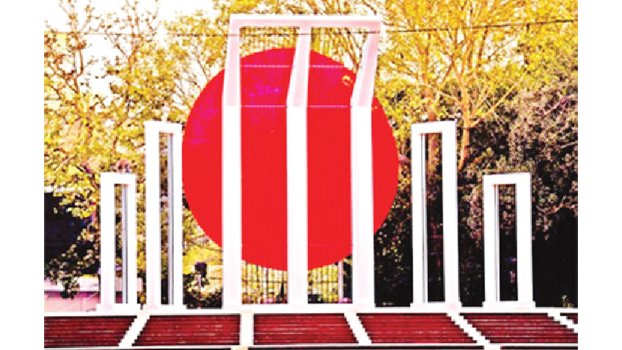The great Language Movement and its origin

The great Language Movement of Bangladesh has a glorious history. The movement was started from the very beginning of the division of British India into the two separate states of India and Pakistan in 1947. Bengalis struggled and achieved the language (Bengali) as the state language. The recognition of the language cost many sacrifices.
In 1947, a key resolution at a national education summit in Karachi advocated Urdu as the sole state language, and its exclusive use in the media and in schools. Protests immediately arose in the then East Pakistan.
Later in a meeting Bengali was stipulated as an official language of the Dominion of Pakistan and as a medium of education in East Bengal. However, the Pakistan Public Service Commission removed Bengali from the list of approved subjects, as well as from currency notes and stamps. The central education minister Fazlur Rahman made extensive preparations to make Urdu the only state language of the Dominion of Pakistan.
Public outrage spread, and a large number of Bengali students met on the University of Dhaka campus on 8 December 1947 to formally demand that Bengali be made an official language. To promote their cause, Bengali students organized processions and rallies in Dhaka. The language movement prompted the people of East Bengal (later East Pakistan) to establish a separate national identity, distinct from that of the remainder of Pakistan.
After a series of protests, at nine o'clock on the morning of 21 February 1952, students began gathering on the premises of the University of Dhaka in defiance of Section 144 of the penal code. The university vice-chancellor and other officials were present as armed police surrounded the campus. By a quarter past eleven, students gathered at the university gate and attempted to break the police line. Police fired tear gas shells towards the gate to warn the students. A section of students ran into the Dhaka Medical College while others rallied towards the university premises cordoned by the police.
The vice-chancellor asked police to stop firing and ordered the students to leave the area. However, the police arrested several students for violating Section 144 as they attempted to leave. Enraged by the arrests, the students met around the East Bengal Legislative Assembly and blocked the legislators' way, asking them to present their insistence at the assembly. When a group of students sought to storm into the building, police opened fire and killed a number of students, including Abdus Salam, Rafiq Uddin Ahmed, Abul Barkat and Abdul Jabbar. As the news of the killings spread, disorder erupted across the city. Shops, offices and public transport were shut down and a general strike began.
On 7 May 1954, the constituent assembly resolved, with the Muslim League's support, to grant official status to Bengali. Bengali was recognised as the second official language of Pakistan on 29 February 1956, and article 214(1) of the Constitution of Pakistan was amended to provide that "The state language of Pakistan shall be Urdu and Bengali."



